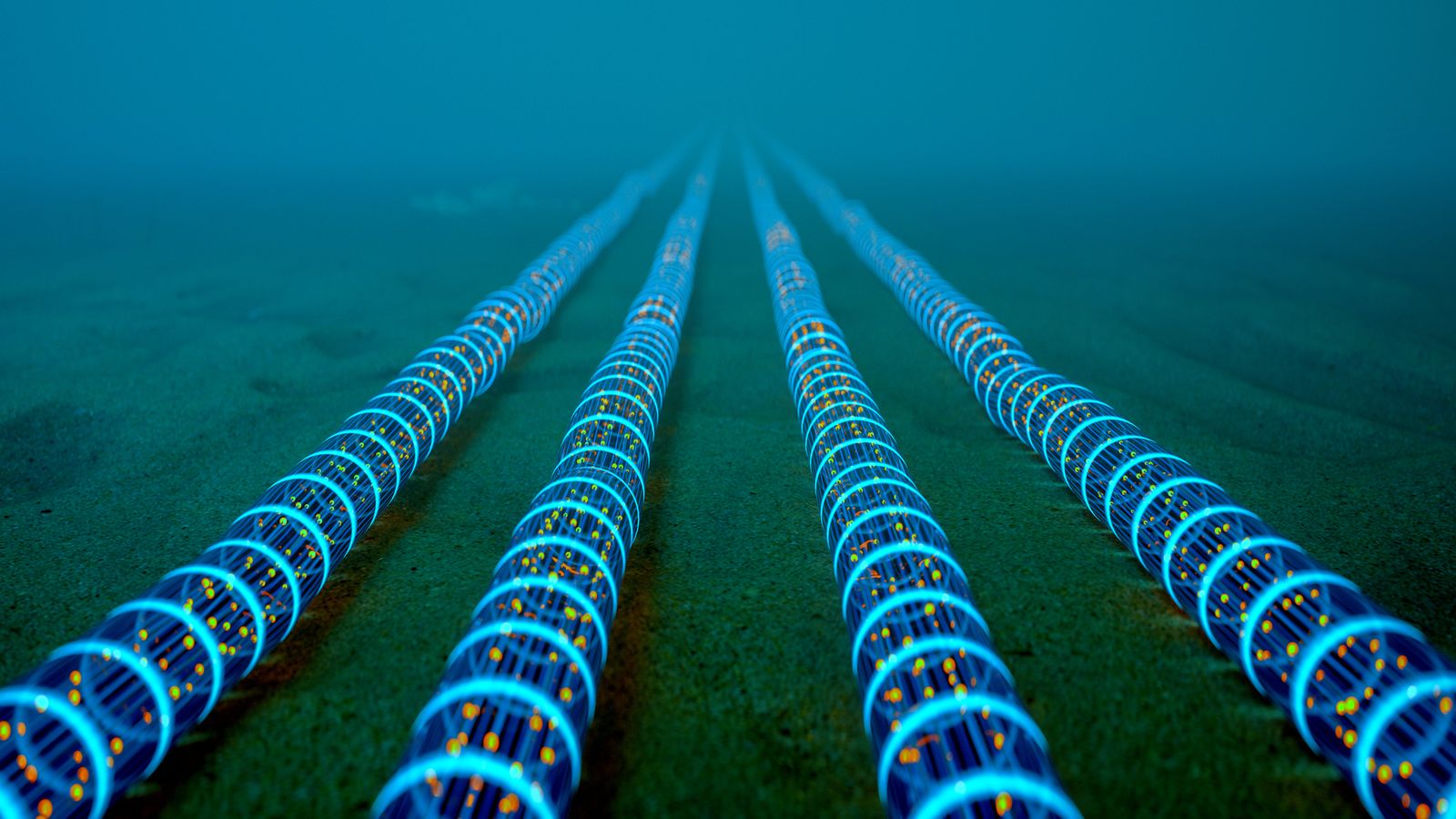Internet access in parts of Asia and the Middle East was disrupted after undersea cables were cut, experts have said.
The Middle East “may experience increased latency due to undersea fibre cuts in the Red Sea,” Microsoft said on its Azure status website.
The tech giant gave no other details, but said internet traffic not moving through the region “is not impacted”.
X
This content is provided by X, which may be using cookies and other technologies.
To show you this content, we need your permission to use cookies.
You can use the buttons below to amend your preferences to enable X cookies or to allow those cookies just once.
You can change your settings at any time via the Privacy Options.
Unfortunately we have been unable to verify if you have consented to X cookies.
To view this content you can use the button below to allow X cookies for this session only.
Enable Cookies
Allow Cookies Once
NetBlocks, which monitors internet access, said “a series of subsea cable outages in the Red Sea has degraded internet connectivity in multiple countries”, which it said included India and Pakistan.
The firm blamed “failures affecting the SMW4 and IMEWE cable systems near Jeddah, Saudi Arabia“.
Posts on X included graphics showing a sharp drop in connectivity on Saturday.
SMW4, the South East Asia/Middle East/Western Europe 4 cable is run by Tata Communications, part of the Indian conglomerate.
IMEWE, or the India/Middle East/Western Europe cable, is run by another consortium overseen by Alcatel Submarine Networks.
Neither firm has commented.
Pakistan Telecommunications, a major telecommunication firm, said cuts had taken place in a statement issued on Saturday.

Image:
Protesters, mostly Houthi supporters, demonstrate in solidarity with Palestinians in Gaza, in Sanaa, Yemen in August. File pic: Reuters
Saudi Arabia did not acknowledge the disruption and authorities did not respond to a request for comment.
In the United Arab Emirates, internet users on the country’s state-owned Du and Etisalat networks complained of slower internet speeds but the government did not acknowledge the disruption.
NetBlocks confirmed in a second post that the UAE had suffered “slow speeds and intermittent access as engineers work to resolve the issue impacting multiple countries”.
While the cause of the disruption has not been confirmed, there has been concern about Houthi rebels, based in neighbouring Yemen, targeting Red Sea cables.
The insurgent group is engaged in a campaign against Israel to pressure it to end its war on Hamas in the Gaza Strip.
In early 2024, Yemen’s government-in-exile alleged that the Houthis planned to attack undersea cables in the Red Sea.
Several were cut, but the Houthis denied being responsible.
Undersea cables, as well as satellite connections and land-based cables, are one of the backbones of the internet.
Service providers usually have multiple access points and reroute traffic if one fails, although it can slow access for users.
Read more on Sky News:
A different Zuckerberg sues Meta
Japanese PM resigns
London teen made a saint
Anchors dropped from ships and dragged along the sea floor can cut cables, which can also be targeted in attacks and repairs can take weeks.

